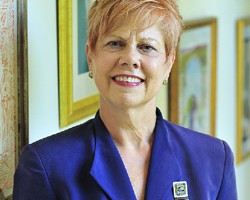What Do You Need To Save For Retirement?
By Roxanne Fleszar
As a financial planner, the most common question that a new client will ask me is if they will be able to afford to retire. Whether a “youngster” just starting to save or an “oldster” getting ready to retire in several years, individuals want to understand what goal to shoot for.
I am always pleased to assist youngsters in starting to save as I know they have years for the power of the compounding of money to assist them. A contribution of $100 per month over 40 years at a 7% annual rate of return compounds to $253,557 or $515,365 over 50 years. Millennials seem to get it, or perhaps they have parents and grandparents urging them to start saving early.
Many boomers found their pension was replaced by a defined contribution plan such as a 401(k), SEP IRA or SIMPLE IRA; these plans require their monetary contribution and investment savvy. Unfortunately many of them have not learned the importance of tax-deferred compounding. As I discussed in detail In my last column, more than 50% of Americans have not saved enough to maintain their standard of living in retirement.
Perhaps that is you. You may have procrastinated, lived “big”, lost a job, a business or your home in the 2008-2009 financial down turn, or spent your savings educating your children. The good news is never too late to get started or back on track.
There are no miracles, just a determination to move forward in the right direction. In this column I am going to give you several ideas to get you started. We’ll expound upon these in future articles.
First you need to know how much you are going to need to not outlive your assets. There are calculators online to assist you or you may consult with your financial planner to help you determine your goal. It’s a starting point and one that you will consult with over the years to determine if you are on target . Adjustments can be made as necessary. Research has shown the exercise of monitoring your results will likely assist you in meeting your objectives.
The obvious first step is to increase your savings by either increasing your income or decreasing your spending.
We all have expenses which can be categorized as needs, desires or wishes. Needs cover basics such as food, shelter, transportation, insurance and the like. Our income from work and/or investments needs to provide a safe and predictable income stream to cover these expenses. Desires are things that make your life better such as cable TV, an iPad and or tennis lessons. Wishes are expensive vacations, jewelry, or a luxury car. You get the idea, you can live without the latter but not the former.
So what can you do to get started? Evaluate your expenses and eliminate all those that are unnecessary.
Habits die hard such as eating lunch out daily or stopping for a bucci on your way to work. A savings of $5 to $10 a day compounded over several decades amounts to thousands of dollars of potential retirement savings.
A larger alignment would be to downsize a house, sell a boat, move to a less expensive locale…even to another country. The increase in your retirement savings account plus a lower cost of living could dramatically enhance your retirement.
Are you one of the folks that receive a tax refund every year? You may perceive it to be a form of automatic savings, but I would recommend a better option; adjust your withholding to closely match your estimated 2015 tax obligation and direct the savings difference to your IRA or other retirement plan option. The difference in the savings can be deducted from your paycheck or checking account automatically so it is still a form of automatic savings.
Pay off all consumer debt. You are earning less than 1% in a bank account today. Why are you paying them 15.99% or more to make purchases? Never spend more than you can afford to pay off at the end of a month. If you have existing debt, pay it down as soon as possible so you can direct your savings to yourself, not your favorite banker.
Can you find new money sources? What about selling items you no longer use on EBay or Key West Yard Sale? Or sharing your home with a roommate? Moving your office to your home? Or dog walking, buying groceries or doing errands for a fee? How about selling items that you create on Etsy? Get creative! The proceeds can really add up.
Roxanne E. Fleszar, CFP, ChFC is President of Financial Resources Management Corporation, a registered investment advisory firm with offices in Key West, Boston and Naples.
[livemarket market_name="KONK Life LiveMarket" limit=3 category=“” show_signup=0 show_more=0]



No Comment